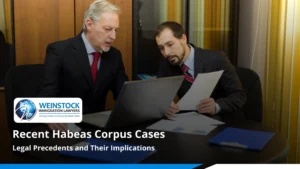USCIS Policy Change
USCIS Policy Change
In their new guidance, U.S. Citizenship and Immigration Services (USCIS) will now start deportation proceedings for thousands of applicants who are denied an immigration benefit. This policy change is a clear sign of a change in the way that USCIS operates.
Just as a refresher, USCIS is to administer immigration benefits, not enforce immigration. USCIS was created to focus on customer service, processing visa, green card, naturalization and humanitarian applications.
The new USCIS guidance instructs staff to issue a Notice to Appear (NTA) to anyone who is unlawfully present when an application, petition, or benefit request is denied. This will include all undocumented applicants, as well as those individuals whose lawful status expires while their request is pending.
An NTA (Form I-862) is a document issued to individuals when there are grounds for deporting them from the United States. The NTA is issued by Immigration and Customs Enforcement (ICE), Customs and Border Protection (CBP) and USCIS. It must be served to the individual and presented to the immigration court for removal proceedings to be triggered. When someone receives an NTA, they must appear before an immigration judge to determine if they are eligible to remain in the country legally or should be removed.
This new guidance makes USCIS issue NTAs as well in these cases:
-
- Denials of an initial application or re-registration for Temporary Protected Status (TPS) or a withdrawal of TPS when the applicant has no other lawful immigration status.
-
- When fraud, misrepresentation, or evidence of abuse of public benefit programs is part of an individual’s record.
-
- When someone is under investigation or arrested for any crime, if the application is denied and the person is removable.
-
- In cases where USCIS issues an unfavorable decision and the individual is not lawfully present in the United States.
Possibly there is only one good news related to this new guidance. It makes applicants for Deferred Action for Childhood Arrivals (DACA) the exception to this new NTA policy.
Previous leaders of USCIS have issued memos against the practice of widespread NTA issuance, arguing it was impractical, would divert resources, create longer wait times, and clog the immigration courts even more. Further, denials of immigration benefits applications are often reversed upon reconsideration or appeal. This means that thousands of cases that will be approved will be needlessly delayed in an already overworked court system. If an immigration benefit request is approved on appeal, the individual must then seek termination of proceedings, consuming even more court resources. With over 700,000 cases already in the court backlog, it’s unimaginable for the agency to manage many thousands more.
Related posts

The Future of Habeas Corpus: Legal Challenges and Constitutional Safeguards
Summary The blog explains how habeas corpus, a fundamental legal right enshrined in the U.S. Constitution, ensures protection against unlawful detention. It highlights the current

Can Entrepreneurs and Business Owners Qualify for a TN Visa?
Summary If you’re a Canadian or Mexican entrepreneur living in the U.S. or planning to launch a business here, you may be wondering: Can I

Recent Habeas Corpus Cases: Legal Precedents and Their Implications
Summary The article explains how recent habeas corpus cases, including Rivers v. Guerrero and W.M.M. v. Trump, have significant implications for the interpretation of the
